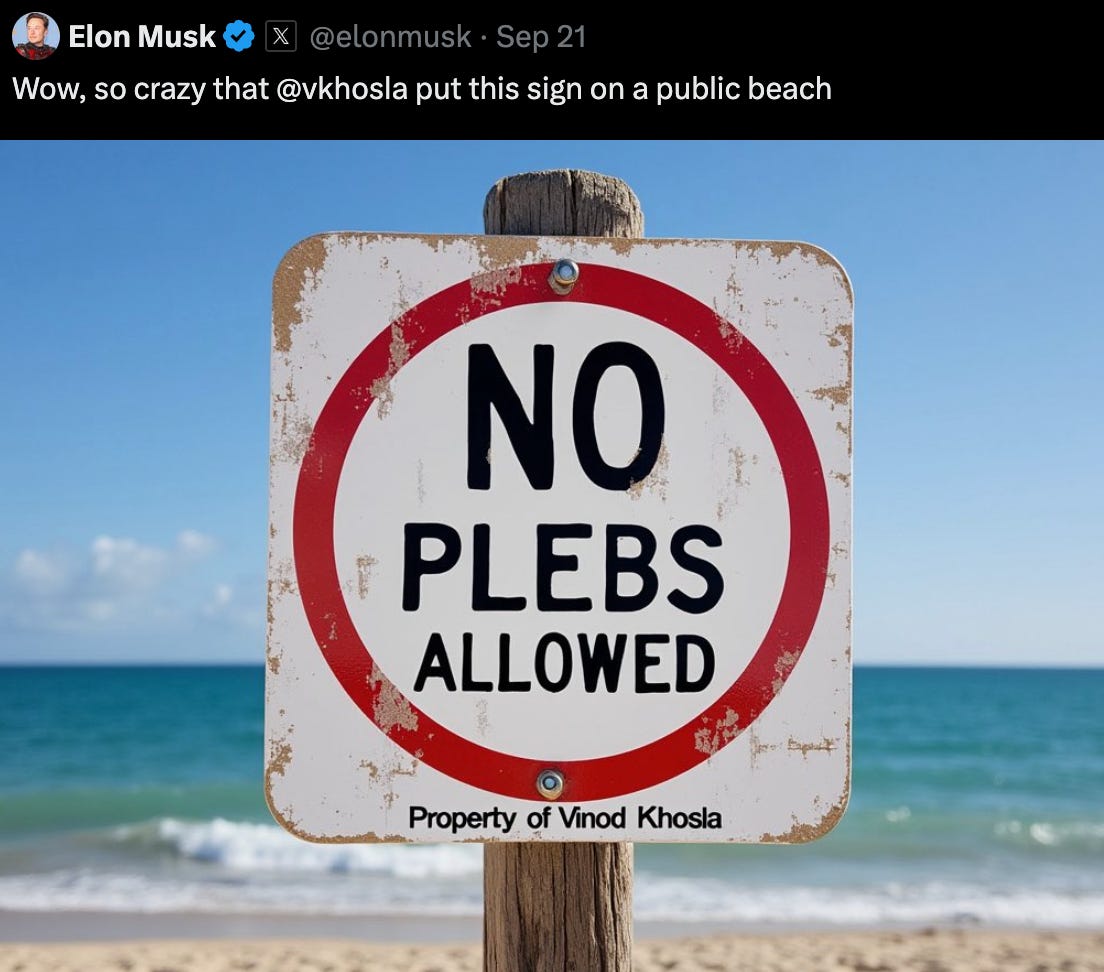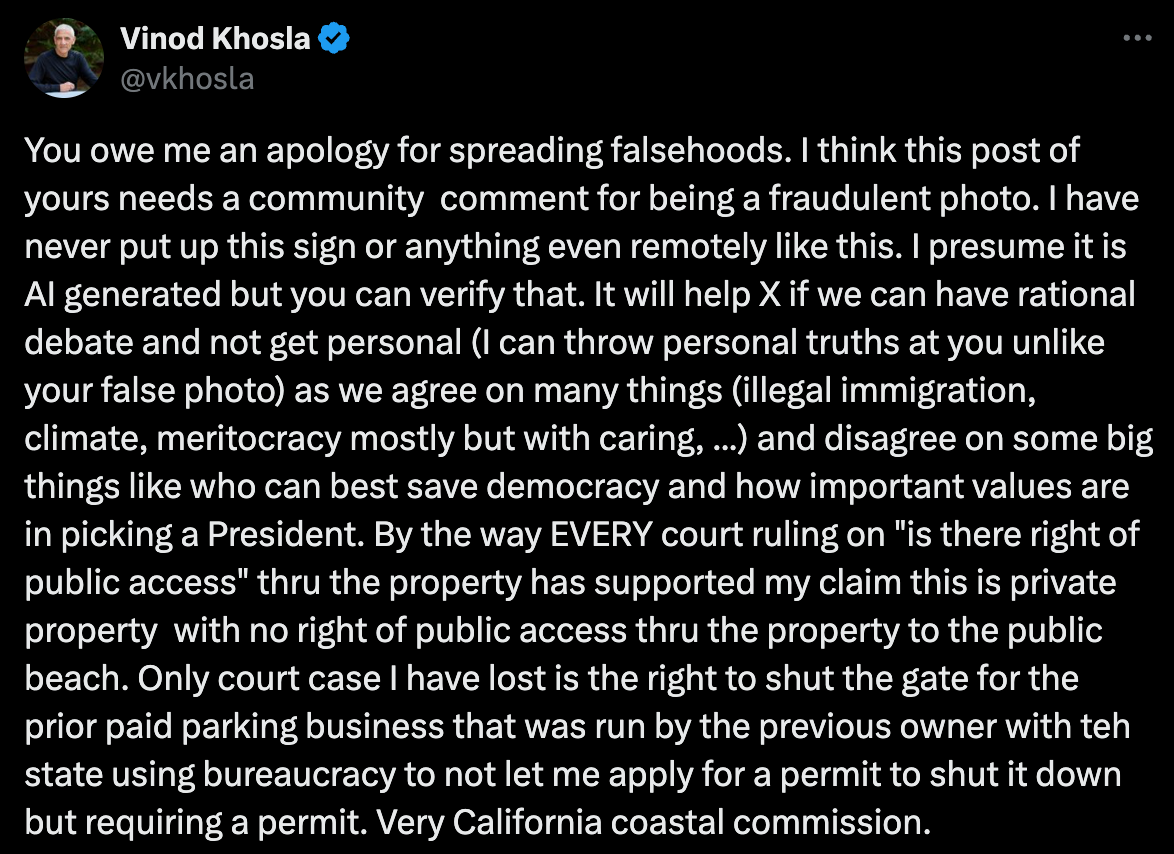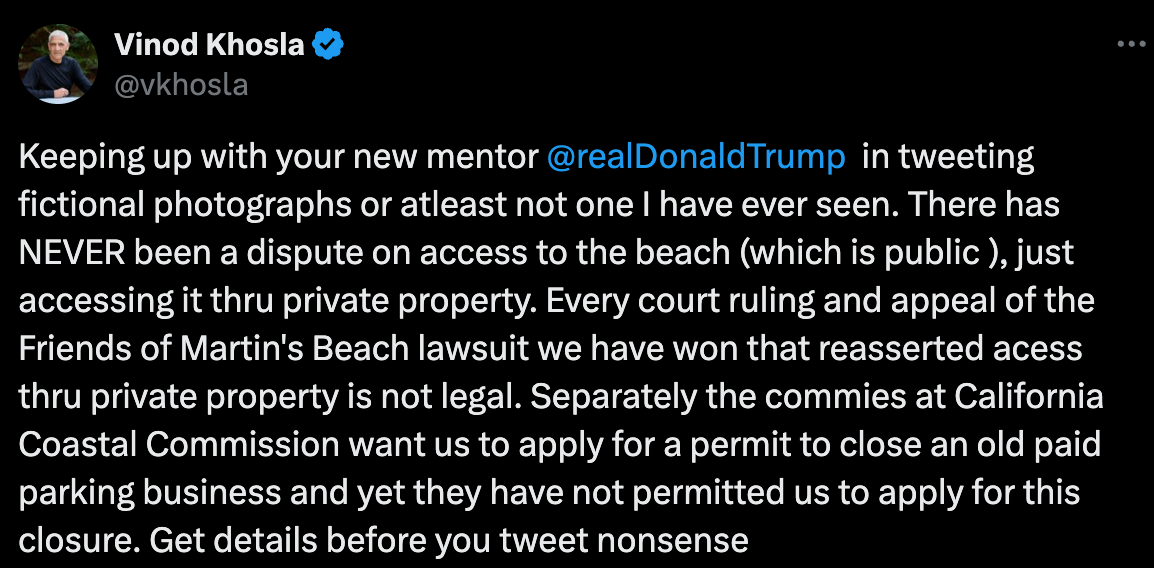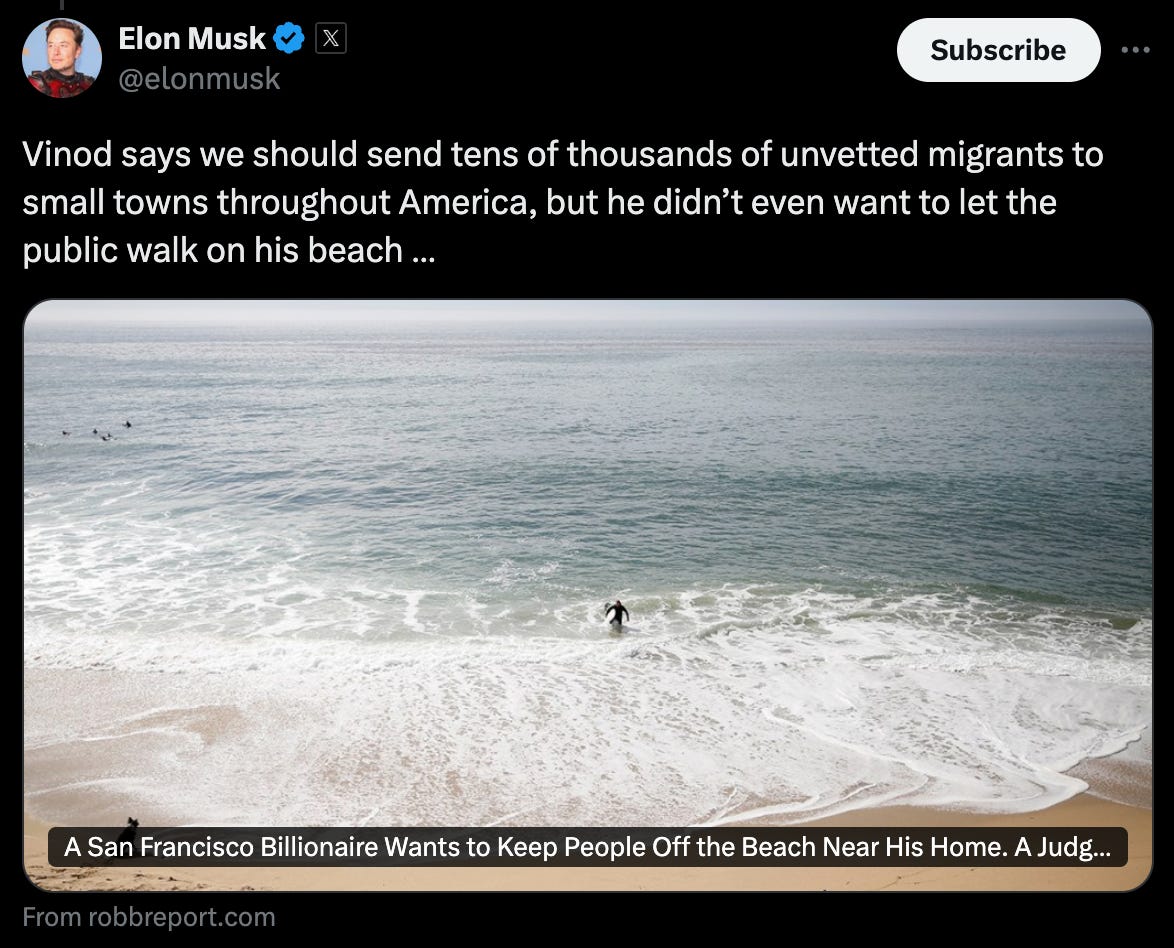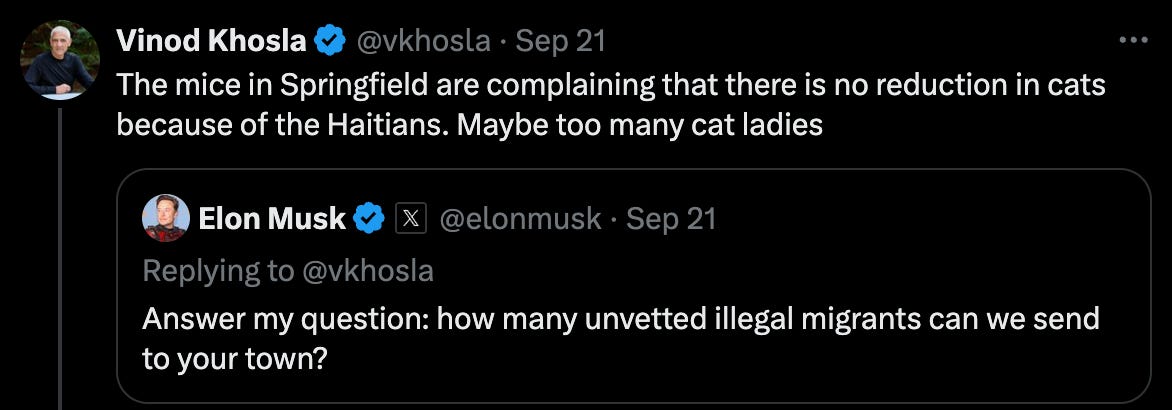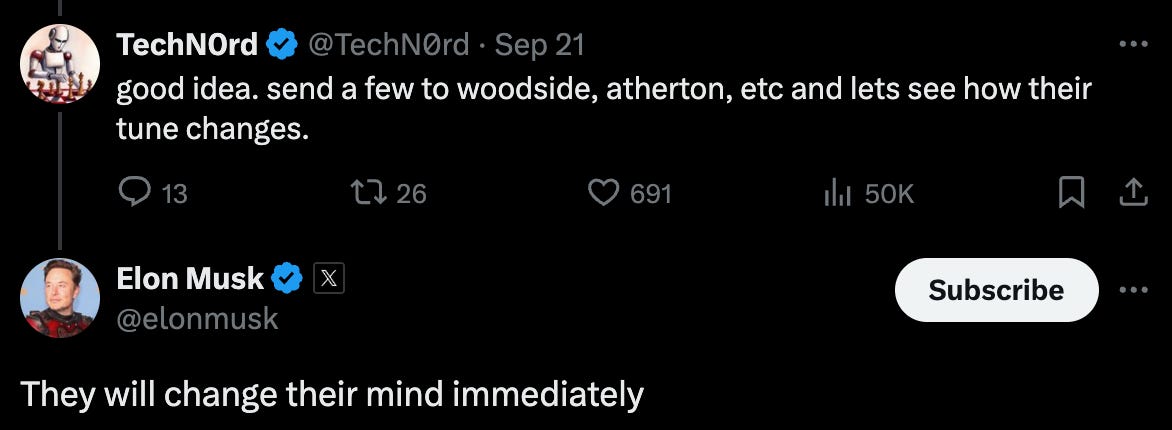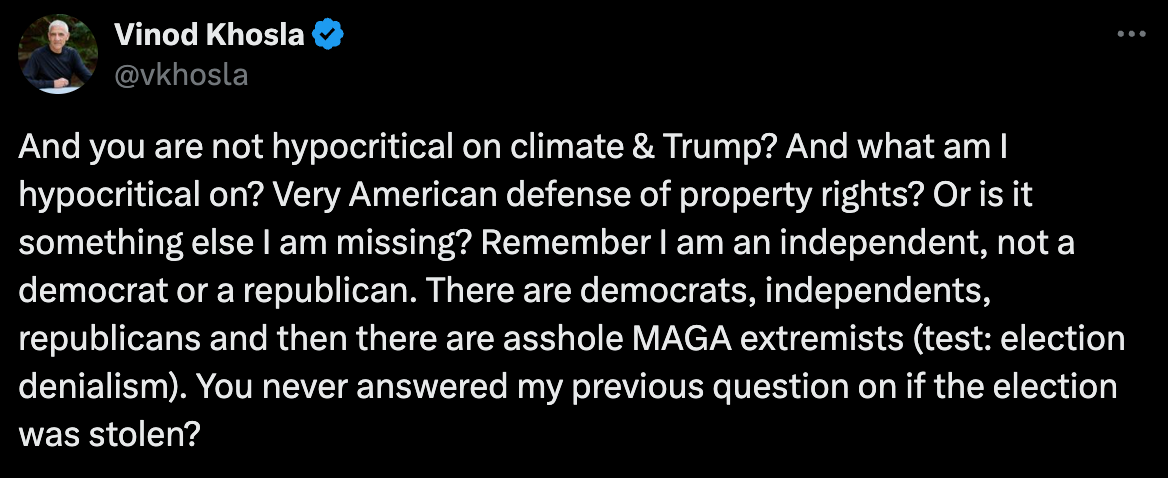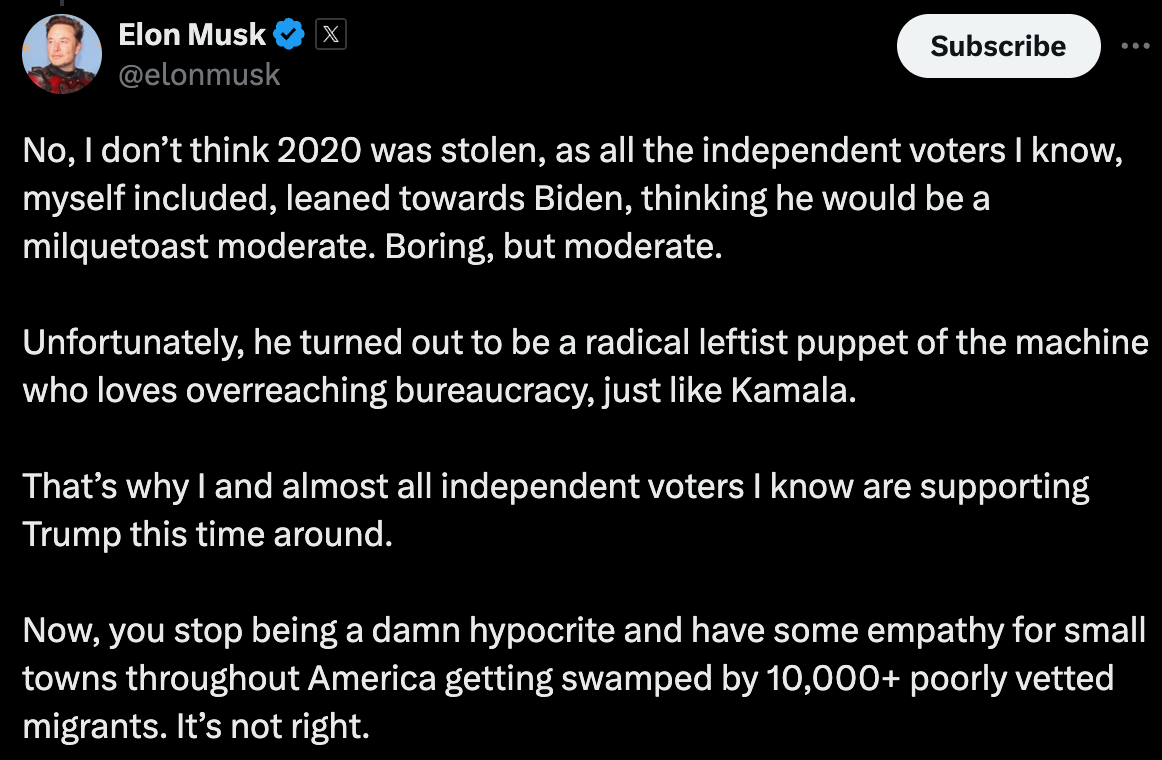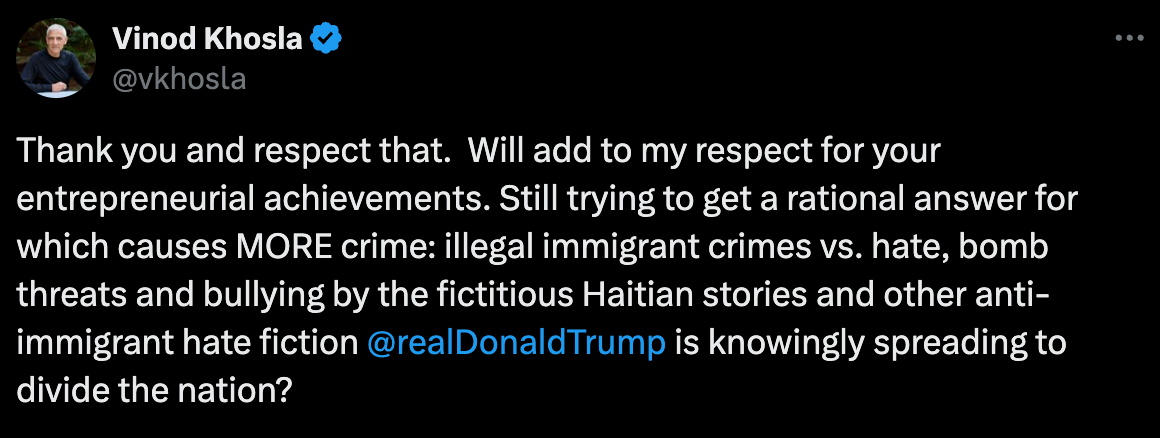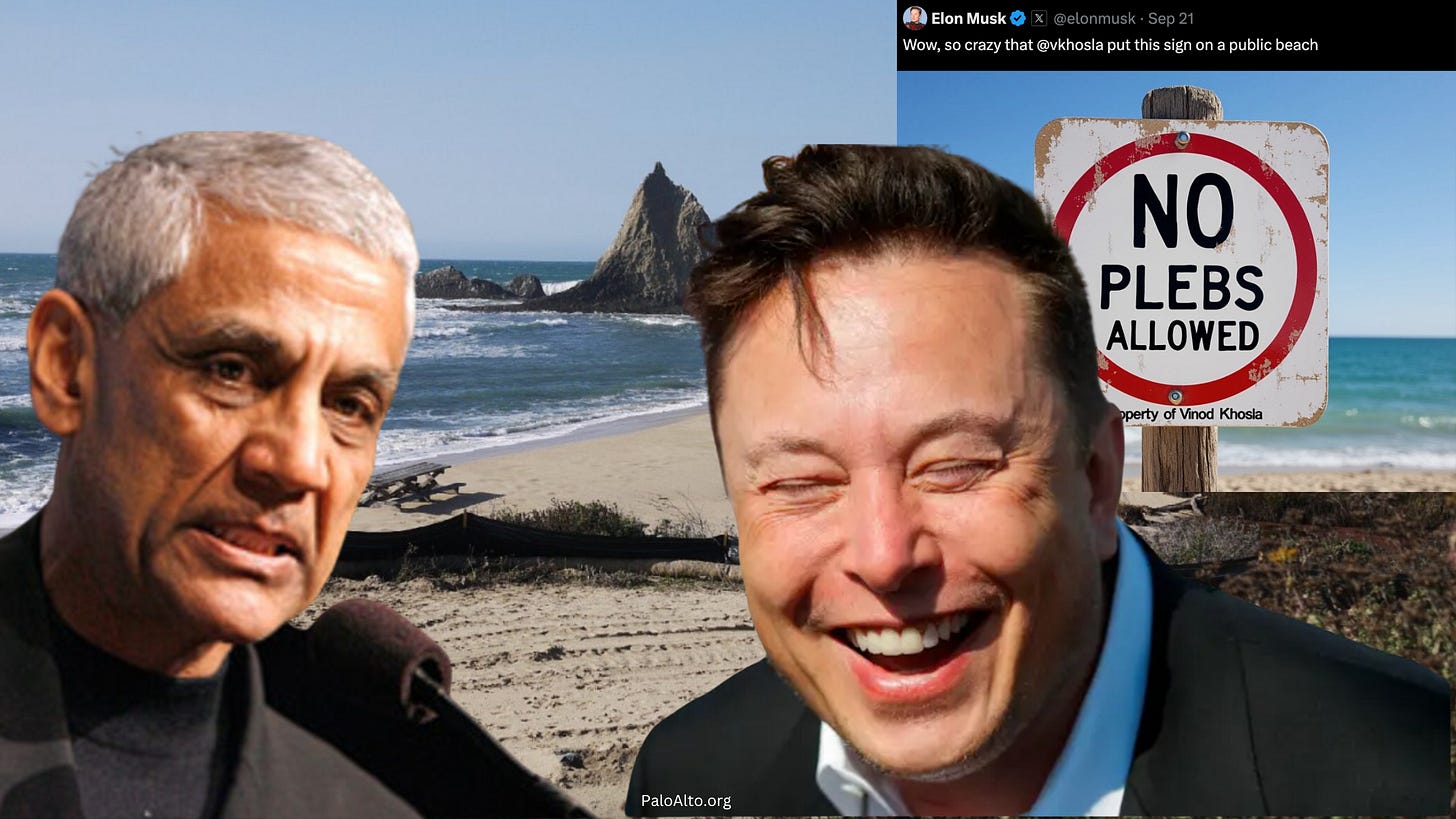Access Denied: Musk and Khosla's Clash Over California Beaches
Elon Musk and Vinod Khosla are engaged in a heated clash over public beach access, with Musk openly challenging Khosla's attempts to restrict entry to Martins Beach, located seven miles south of Half Moon Bay.
There are several key points to consider in this debate. First, the controversial sign is likely seen by most as a comedic prop, yet it underscores Musk's perception that Khosla is dismissive of everyday Californians regarding unrestricted beach access. While it's true that the beaches near Half Moon Bay may not have the same popularity as those in Malibu, the issue transcends the specific location.
The long stretches of road along the coastline often remain empty, with few people in sight for miles. However, the principle of public access to beaches remains paramount. For many, it's not just about the number of visitors but the fundamental right to enjoy California’s coastal beauty without barriers imposed by private landowners.
Political differences further complicate the situation, particularly evident in Khosla's dismissal of the Coastal Commission, which he referred to as “commies” for denying his request to keep the gate he installed. Musk, on the other hand, has shown support for Trump, partly in response to the Biden administration's exclusion of Tesla from electric vehicle summits, despite Tesla being a leader in the industry.
In contrast to Musk's political leanings, Khosla hosted a fundraiser for President Biden at his Portola Valley home earlier this year, shortly before Biden announced he would not seek re-election. This stark divide in their political affiliations highlights the broader implications of their feud over beach access, illustrating how personal beliefs and political motivations intersect in this contentious debate.
The conversation then delves into the migrant issue, bringing to light the "Not In My Backyard" (NIMBY) mentality that Musk frequently highlights among Silicon Valley’s venture capital elite. While many in this circle promote inclusive values, their stance often changes when faced with initiatives that may impact their own communities.
Musk uses this hypocrisy to underscore a broader contradiction within the tech industry, where support for progressive policies can wane when personal interests are at stake. This discussion not only emphasizes the complexities of immigration but also reflects the tension between idealism and reality that many affluent individuals face in their own neighborhoods.
Musk excels at highlighting hypocrisy, using memes and concise phrases to effectively convey his points and showcase his media savvy. Earlier in the year, Marc Andreessen, the co-founder of another titan VC firm, Andreessen Horowitz, faced criticism for advocating that more housing and development should occur in major urban areas while opposing similar initiatives in his own community of Atherton, California. In public discussions, he emphasized the need for increased housing density in cities to address the housing crisis and improve affordability. However, when proposals arose for building more homes near his affluent neighborhood, he and other local residents resisted those developments, citing concerns about traffic, environmental impact, and preserving the character of their community.
I’ve found the Paul Rogers from the Mercury News to be doing the best reporting on this that a judge from the San Mateo County Court dealt Khosla a significant legal setback on Thursday, rejecting his motions to dismiss a lawsuit filed by the California Coastal Commission and the State Lands Commission. The lawsuit, initiated in 2020, aims to secure greater public access to the beach. Superior Court Judge Raymond Swope ruled that the case will proceed, with a trial scheduled for April.
Khosla has characterized the situation as a matter of private property rights, whereas political leaders, surfers, and environmentalists argue that the case could set a precedent regarding whether California's beaches can be restricted by wealthy landowners.
The beach battle began over 15 years ago when Khosla purchased 88 acres of coastal land surrounding Martins Beach for $32.5 million, a property that families had used for generations. In 2010, he locked the gates and posted no trespassing signs, prompting protests from surfers and environmental groups who argued that the road was the only access to the public beach. The Coastal Commission mandated that Khosla apply for a permit to lock the gate, leading to a lawsuit by the Surfrider Foundation; after losing in lower courts, he appealed to the U.S. Supreme Court, which declined to take the case in 2018.
Currently, Khosla allows limited access to the beach for a parking fee, but after being sued again in 2020 by the Coastal Commission and State Lands Commission—who presented evidence from over 200 families claiming historical access—his legal future hinges on the outcome of this latest case, which could result in significant fines if he loses.
Coastal Commission has consistently fought to preserve public beach access in various locations, including cases where property owners have built structures or fences that impede access to beaches.
Ultimately, Musk knows this is a sensitive issue for Khosla, who likely realizes that most polls show the public supports unrestricted beach access and resents wealthy landowners who use legal tactics to assert control. This is why Khosla shifts the conversation to Musk's perceived hypocrisies instead of addressing the core issue at hand. Both of these tech leaders remain influential figures in the Bay Area and the tech world, and their public exchanges and trolling on Twitter serve Musk's agenda, turning his social media platform into a source of newsworthy content.



